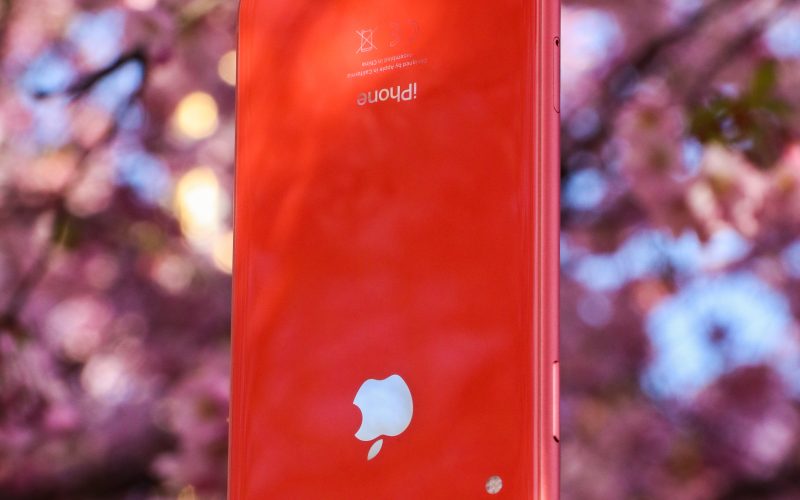From revolutionizing the way we listen to music with the iPod, to transforming the smartphone industry with the iPhone, Apple has a history of disrupting industries. And now, it seems that they have their sights set on shaking up the banking world. With rumors swirling about their plans for a digital wallet and potential partnerships with financial institutions, many are wondering: is Apple on the verge of disrupting the entire banking industry? In this blog post, we’ll explore what’s currently happening in banking and how Apple could potentially change everything as we know it.
Apple’s History with Disrupting Industries
Apple is known for its innovative and disruptive approach to technology. One of the first instances of this was with the introduction of the Macintosh computer in 1984, which revolutionized personal computing by making it more user-friendly and accessible.
In 2001, Apple disrupted the music industry with the iPod, a portable digital music player that allowed users to carry thousands of songs in their pocket. It quickly became a cultural phenomenon and completely changed how people consume and listen to music.
Then came the iPhone in 2007, which not only transformed smartphones but also revolutionized communication as we know it. The App Store opened up endless possibilities for developers to create new apps that could be accessed on-the-go.
More recently, Apple has made strides in disrupting healthcare with features like heart rate monitoring on Apple Watches and HealthKit integration across devices.
All these examples show how Apple has been successful at identifying areas where existing industries can be improved upon or even completely overhauled through innovation. With such a track record, it’s no surprise that many are speculating about what they have planned next – including potentially disrupting banking as we know it.
The Banking Industry Today
The banking industry today is a vast and complex system that forms the backbone of our modern economy. From deposit accounts to loans and mortgages, banks offer a wide range of financial services that are essential for individuals as well as businesses. However, the traditional banking model has come under scrutiny in recent years due to various reasons such as customer dissatisfaction, security breaches and high fees.
One of the biggest challenges facing the industry is its outdated infrastructure which relies heavily on physical branches and paperwork. This makes it difficult for customers to access their accounts quickly and easily or complete transactions remotely without having to visit a branch.
Moreover, with the rise of digital technology, consumers have become increasingly tech-savvy and expect more from their financial institutions than just basic services. They demand an intuitive user experience across multiple platforms including mobile devices which allow them to manage their finances seamlessly anytime anywhere.
Another concern is privacy and security issues especially with sensitive data like personal identification numbers (PINs) or social security numbers being stolen or hacked by cybercriminals who can use this information for fraudulent activities.
While there have been some improvements made in recent years such as online banking apps offering more convenience than ever before; there’s still much work left to be done if traditional banks want to remain relevant amidst fierce competition from fintech startups who are quickly making headway into disrupting this age-old industry.
Apple’s Plans for the Banking Industry
Apple has been known for its innovative approach to technology and the company is now setting its sights on disrupting the banking industry. The tech giant has already made moves in this direction with Apple Pay, a mobile payment system that allows users to make purchases using their iPhones or other Apple devices. However, it seems that Apple’s ambitions go far beyond just payments.
Reports suggest that Apple is planning to launch a debit card in partnership with Goldman Sachs, which will allow users to manage their finances directly from their iPhone. This would give customers access to features such as budgeting tools and cashback rewards, all integrated into the familiar iOS interface.
Apple may also be looking at creating a peer-to-peer payment platform similar to Venmo or Square Cash. This would allow users to easily send money back and forth between friends or family members without having to go through traditional banks.
It seems clear that Apple sees an opportunity in the banking industry and is taking steps towards becoming a major player in this space. If successful, we could see significant changes in how people manage their finances in the future.
How the Banking Industry will Change if Apple is Successful
If Apple successfully disrupts the banking industry, we can expect to see significant changes in how consumers interact with their finances. One major change will likely be a shift towards mobile and digital banking, making traditional brick-and-mortar banks obsolete.
Apple’s reputation for user-friendly technology could also lead to simplified and streamlined financial management tools. This would make it easier than ever for consumers to monitor their accounts, track spending, and manage budgets through an intuitive interface.
Another potential impact of Apple’s entry into the banking space is increased competition among established players. Banks may need to step up their game by offering more innovative products and services or risk losing market share to tech companies like Apple.
If successful in disrupting the industry, Apple may even pave the way for other technology giants such as Google or Amazon to enter the financial services space. While there are certainly risks associated with any significant shakeup of an established industry like banking, many consumers stand to benefit from increased innovation and competition brought about by disruption from outside forces.
Conclusion
Apple’s entry into the banking industry has the potential to be a game-changer. With its vast resources, innovative mindset and loyal customer base, it can disrupt traditional banks’ way of doing things and create new opportunities for consumers.
While there are certainly risks and challenges in this venture, we cannot deny that Apple has already disrupted several industries in the past. From music to telecommunications, their track record speaks for itself.
It remains to be seen how much impact Apple will have on the banking industry. However, one thing is certain: they will force other players to adapt and innovate or risk being left behind.
Whether you’re excited about Apple’s plans or wary of them, there’s no denying that we’re witnessing an exciting time in financial services. We await with bated breath as events unfold over the next few years!












